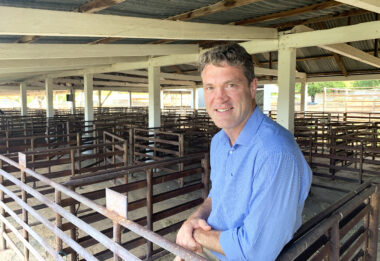South-East Asia presents a “bright spot” for Australian and New Zealand dairy exporters in an “increasingly lethargic global economy”, Rabobank says in a recently-released sector report.
The specialist agribusiness bank says “better times lie ahead” for the dairy markets of the Philippines, Malaysia, Thailand, Singapore and Vietnam, beyond short-term headwinds currently at play across the region.
And this means South-East Asia will continue to provide growth opportunities for dairy exporters in the medium term, the report, titled South-East Asia – in Transition to Better Times, says.
This is positive news for Australian and New Zealand dairy exporters, says report author, Rabobank senior dairy analyst Michael Harvey, with Oceania traditionally dominating dairy exports to the region.
However, he cautions, opportunities are opening up for the emergence of new competitive players.
“Over the medium term, this region is full of vibrant dairy markets with diverse consumer bases that deliver opportunities for exporters to offer a wide range of consumer products in fast-growing markets,” Mr Harvey said.
Transition
Dairy markets in South-East Asia are in transition, the report says, as they cycle out of a period of channel disruption, sluggish consumer demand for dairy products and downstream margin pressure that had culminated in a slow down in trade growth between 2020 and 2022.
Dairy trade growth into the region slowed to just 1.4 per cent average annual growth during the pandemic (from 2020 to 2022), down on a compound annual growth rate of 3.3 per cent over the past decade.
South East Asia has not been immune to global pressures, Mr Harvey said, with economies across the region posting weak growth between 2020 and 2022.
“However, from 2024 onward, the region will present a bright spot against an increasingly lethargic global economy,” he said. “Consumer market conditions are improving, with a more meaningful recovery expected from 2024 as inflation eases, food service demand improves and marketing and investment activities increase to support demand growth.”
The International Monetary Fund (IMF) forecasts growth of between four and seven per cent across South-East Asian economies between 2023 and 2028, the report cites.
“This is strong growth that underpins our dairy demand forecasts,” Mr Harvey said.
That said, he cautions, “these growth rates forecasts still fall below recent historical rates and these economies also face the looming risk of China’s economic slowdown proliferating through the region”.
Milk deficit
Collectively, South-East Asia has a significant milk deficit, the report says. And while local milk production is growing in most countries in the region, it is coming from a low base.
Mr Harvey said challenges associated with feed quality, genetics, capital and other resources remain major hurdles to domestic milk supply growth in South-East Asia.
“As a result, self-sufficiency rates for dairy remain low in the region and are unlikely to see a transformational lift over the medium term to 2030,” he said.
Rabobank estimates the region’s combined dairy import stood at 9.9 billion litres in 2022 – compared with China’s 14 billion litres in the same year.
With the region at the beginning of a trade recovery, Rabobank expects total dairy import volumes for South-East Asian countries to be two per cent lower in 2023 before import growth accelerates by three per cent in 2024.
And “further over the horizon”, the bank expects South-East Asia’s import deficit to widen even more as demand growth collides with local supply limitations.
Fierce battleground
While this will provide a good platform for growth for dairy exporters, the report warns the region will remain a “fierce battleground” for local brands and exporters.
“The region is typically dominated by Oceania, but opportunities are opening up for the emergence of new players,” Mr Harvey said.
“This means price competitiveness, distribution, new product development and marketing credentials will be critical for the long-term success of all players.”
<ends>
Media contacts:
Denise Shaw Will Banks
Media Relations Media Relations
Rabobank Australia & New Zealand Rabobank Australia
Phone: 02 8115 2744 or 0439 603 525 Phone: 0418 216 103
Email: [email protected] Email: [email protected]
About us:
Rabobank Australia & New Zealand Group is a part of the international Rabobank Group, the world’s leading specialist in food and agribusiness banking. Rabobank has more than 120 years’ experience providing customised banking and finance solutions to businesses involved in all aspects of food and agribusiness. Rabobank is structured as a cooperative and operates in 38 countries, servicing the needs of more than nine million clients worldwide through a network of more than 1000 offices and branches. Rabobank Australia & New Zealand Group is one of Australasia’s leading agricultural lenders and a significant provider of business and corporate banking and financial services to the region’s food and agribusiness sector. The bank has 90 branches throughout Australia and New Zealand

